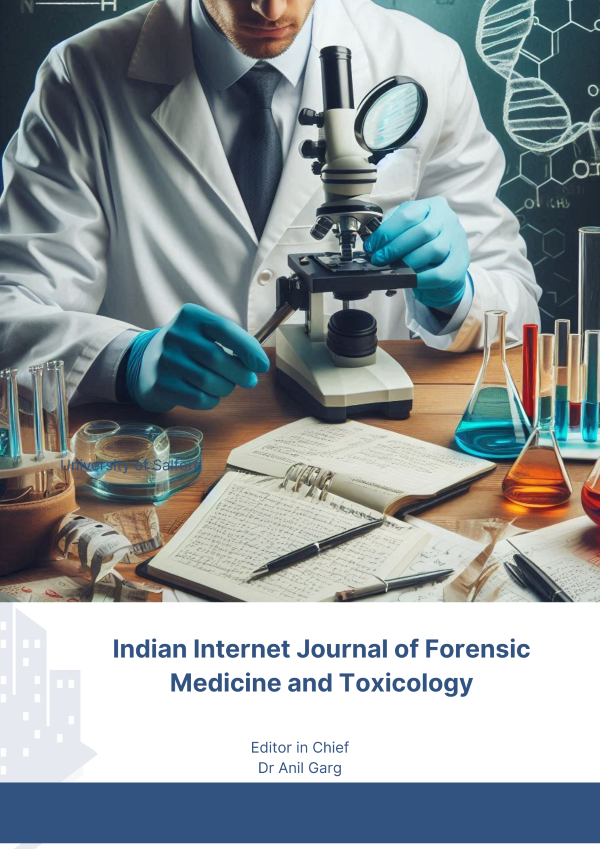Aims and Scope
Aims and Scope
The Indian Internet Journal of Forensic Medicine and Toxicology (IIJFMT) is dedicated to advancing the field of forensic medicine and toxicology by publishing high-quality, peer-reviewed research. This journal serves as a platform for researchers, practitioners, and policymakers to disseminate knowledge, foster innovation, and promote the application of forensic science in the legal and clinical contexts.
Aims:
- Advancement of Knowledge: To Publishing research that significantly contributes to the understanding and development of forensic medicine and toxicology, providing novel insights, methodologies, and applications.
- Interdisciplinary Collaboration: To encourage interdisciplinary research that bridges forensic science, medicine, toxicology, and law, fostering collaboration among experts in these fields.
- Policy and Practice Impact: Support research that informs policymaking and enhances forensic practices, thereby ensuring the reliability and efficacy of forensic science in diverse legal and medical contexts.
Scope:
The journal covers a wide range of topics within forensic medicine and toxicology, including but not limited to:
- Forensic Pathology: Studies on the causes and mechanisms of death, post-mortem examinations, and related forensic investigations.
- Toxicology: Research on the effects of toxins, drugs, and chemicals on the human body, including forensic toxicology analysis methods.
- Clinical Forensic Medicine: The application of medical knowledge to legal cases, including injury assessment, sexual assault examinations, and legal medicine.
- Forensic Anthropology and Odontology: Research related to identifying human remains and applying dental science in forensic investigations.
- Forensic Science in Legal Contexts: The role of forensic evidence in the judicial system, including case studies, expert testimony, and the interpretation of forensic findings.
- Medical Education & Forensic Medicine- Research related to innovative teaching methods, assessment strategies, and curriculum design for medical education, with a specific focus on forensic medicine
- Medical Jurisprudence- Analysis of legal frameworks governing medical practice; ethical considerations in patient care; and the intersection of medicine and the law, case studies, legal analysis, and prevention strategies related to medical malpractice claims, ethical considerations in medical research, including informed consent, data privacy, and the protection of vulnerable populations.
This journal is intended for professionals and academics in forensic medicine, toxicology, and related fields who seek to remain informed about the latest research and developments.

